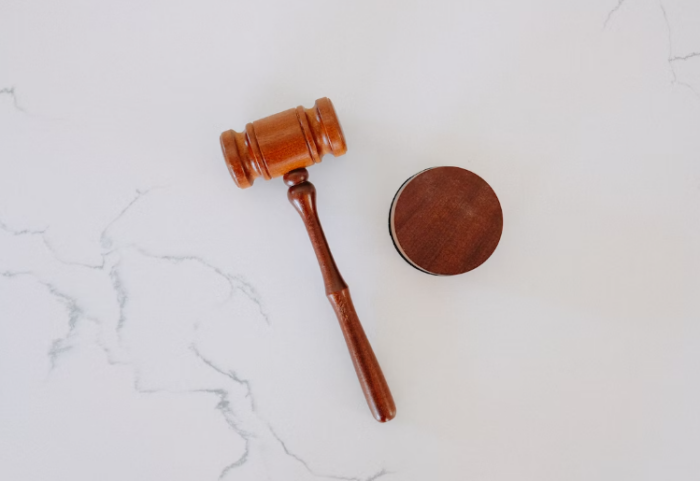21 Sep What is an injunction?


In the realm of law and justice, various legal tools are employed to maintain order, protect rights, and ensure fairness. One such tool is an injunction, a powerful legal remedy that serves to restrain or compel certain actions. Injunctions play a crucial role in preventing harm, preserving the status quo, and upholding the principles of justice.
What is an injunction?
An injunction is a legal remedy, typically granted by a Court, that orders a person or entity to either do something or refrain from doing something, depending on the circumstances of the case.
What is the purpose of an injunction?
When a Court issues an injunction, its main objective is to preserve and maintain the status quo in certain circumstances. This is crucial because failing to do so could potentially cause irreparable harm to one of the parties involved, and seeking alternative remedies might not be sufficient to address the situation adequately.
What are the types of injunctions?
Interlocutory Injunction
An interlocutory injunction is the most common type of injunction. Interlocutory injunctions are temporary restrictions or permissions that the Court can put in place while a legal case is ongoing. They are often used in situations where there is a risk that a party to the dispute will commit an act that will cause irreparable damage to the other party.
They are used when there is an urgent need to protect someone’s rights until the Court reaches a final decision. They are most commonly sought in contractual, property or tortious disputes.
Interlocutory injunctions are also commonly referred to as ‘perpetual injunctions’ or ‘temporary injunctions’.
“The purpose for which the Courts grant an interlocutory injunction…is to regulate and where possible to preserve, the rights of the parties pending the final determination of the matter which is in issue by the Court”.
Attorney-General v Punch Ltd [2003] 1 AC 1046
Interim injunction
An interim injunction is a temporary restriction or permission that one party seeks from the Court for a specific period of time. It’s often used when there’s a need to take action before a final decision is reached.
Sometimes people get confused between interim injunctions and interlocutory injunctions because they’re used in similar situations. But there’s a slight difference. An interim injunction can be sought even after a legal proceeding has been finalised, whereas an interlocutory injunction is requested while the legal proceedings are still ongoing.
The important thing to remember is that both types of injunctions serve as temporary measures, but they are used at different stages of the legal process.
Permanent Injunction
A permanent injunction is only granted in unique circumstances. A final injunction is a Court order that is issued at the conclusion of a legal case, typically after a trial or hearing. It is a permanent injunction that sets out specific restrictions or obligations on the parties involved.
Unlike an interlocutory injunction, which is temporary and issued during the course of legal proceedings, a final injunction is meant to provide a long-term resolution to the dispute.
Permanent injunctions are also commonly referred to as ‘final injunctions’.
Mandatory Injunction
With a mandatory injunction, the Court compels or requires the party to remedy a situation and undo the damage they’ve caused. It could involve completing a particular task or making things right by returning something to its original state.
Mandatory injunctions are only granted in exceptional circumstances.
A case law example of a mandatory injunction is found in Luganada v Service Hotels Ltd [1969] 2 Ch 209, where a tenant was reinstated to their leased property because they were wrongfully evicted.
Prohibitory Injunction
A prohibitory injunction is a type of Court order that prohibits or restrains a party from doing a particular act or engaging in certain behaviour. It is aimed at preventing harm or preserving the status quo while legal proceedings are ongoing or until a final decision is reached.
Prohibitory injunctions are more common than mandatory injunctions. The reason behind this is that it can be tricky to enforce a mandatory injunction. If someone doesn’t comply with the order, it may require ongoing supervision by the Court or other measures to ensure they fulfill their obligations.
On the other hand, with a prohibitory injunction, it’s relatively straightforward to determine whether someone is violating the order by engaging in a prohibited activity.
An example of the Court ordering a prohibitory injunction is seen in Reid v Dukic [2016] ACTSC 344, where an injunction was ordered to restrain the defendant from publishing defamatory posts on social media about the plaintiff.
Check out our case summary of Reid v Dukic [2016] ACTSC 344 here!
Ex parte Injunction
An ex parte injunction is a type of injunction that is granted by the Court based on the request of one party without the presence or prior notice to the other party. It is typically issued in urgent or emergency situations where immediate action is required to prevent irreparable harm or preserve rights.
However, it’s important to note that ex parte injunctions are considered exceptional and are subject to strict requirements and scrutiny by the Court. The party seeking the injunction must demonstrate urgency, provide full and fair disclosure of all relevant facts, and convince the Court that immediate action is necessary to protect their rights or prevent irreparable harm.
Quia Timet Injunction
A quia timet injunction is a type of injunction that is granted by the Court based on the anticipation of future harm or a potential threat. The term “quia timet” is Latin and translates to “he who fears.” In other words, it refers to a situation where someone fears or apprehends that harm may occur in the future.
A quia timet injunction is typically sought when there is a reasonable belief that a future wrongful act or breach of rights is likely to happen, even though it has not yet occurred. It aims to prevent harm or mitigate potential damage before it actually takes place.
Mareva injunction
A Mareva injunction is a type of Court order that prevents a party from disposing of or dissipating their assets or funds. It is typically sought in cases where there is a concern that the party may attempt to move or hide their assets in order to frustrate the enforcement of a judgment or to evade financial obligations.
Mareva injunctions are also commonly referred to as freezing injunctions.
Anton Piller order
An Anton Piller order, also known as a search order, is a Court-issued order that allows the plaintiff or their representatives to enter the defendant’s premises and search for and seize relevant evidence. It is typically sought in cases where there is a risk that the defendant may destroy, conceal, or remove crucial evidence before a trial or legal proceedings take place.
For more information, check out our article on Anton Piller orders here!
How do I apply for an injunction?
An injunction may be applied for either before a matter is brought to Court or during ongoing proceedings or at trial. The applicant must seek a grant for the prohibition or direction of an act to be performed. In order to apply for an injunction, the applicant must prepare an affidavit detailing evidence backing up their case. They must also include all relevant documents to strengthen their argument.
For more information on affidavits, check out our complete guide to affidavits!
What is required for an injunction to be ordered by the Court?
In order to have an injunction granted, the applicant needs to ensure that certain requirements are satisfied by the Court. These include the following:
- The applicant must have made out a ‘prima facie’ claim or a ‘serious question’ to be tried.
- Attempts must have been made by the applicant to rectify the issue that have proved unsuccessful.
- Damages (monetary compensation) cannot properly remedy the situation.
- There must be reason for an urgent application; and
- The Court should make the order on the balance of convenience.
What is meant by ‘prima facie’ or ‘serious question’?
To have their application for an injunction considered, the applicant needs to demonstrate that there is a prima facie case or a serious question that will be tried. This means that they must clearly state the core issue and explain the serious question that has given rise to the dispute in their application.
The prima facie test was discussed in the case, Beecham Group Ltd v Bristol Laboratories Pty Ltd (2006) 227 CLR 57:
“It is sufficient that the plaintiff shows a sufficient likelihood of success to justify in the circumstances the preservation of the status quo pending the trial.”
This means that the applicant must present enough evidence to support their claim and show that there is a genuine issue that merits examination in Court. They don’t need to prove their case conclusively at this stage, but they must demonstrate that there is a solid enough chance of success to justify preserving the current state of affairs until the trial takes place.
What is meant by the ‘balance of convenience’?
The balance of convenience is a legal concept used by Courts to assess and weigh the potential harm or inconvenience that would be caused to the parties involved in a legal dispute if a particular action is taken or an injunction is granted.
When evaluating the balance of convenience, the Court takes into account the interests and rights of both parties and considers the potential harm or benefit to each party in relation to the specific circumstances of the case. The Court aims to strike a fair and equitable balance between the competing interests and assesses which outcome would cause the least harm or inconvenience overall.
What acts can be restrained or ordered?
Injunctions can be used to prevent acts such as:
- Harassment or stalking: Restraining an individual from contacting or approaching another person.
- Intellectual property infringement: Preventing the unauthorised use of trademarks, copyrights, or patents.
- Breach of contract: Stopping a party from violating the terms of a contract.
- Nuisance: Restricting activities that cause significant harm or annoyance to others.
- Trade secrets: Prohibiting the disclosure or use of confidential business information.
- Defamation: Preventing the publication of false or damaging statements about someone.
Injunctions can be used to order acts such as:
- Environmental protection: Ordering a company to clean up pollution or comply with environmental regulations.
- Restoration of property: Requiring someone to return or restore property to its original condition.
- Contractual performance: Compelling a party to fulfill their contractual obligations.
- Public interest: Directing a government agency or official to take action in the public’s interest.
What is the difference between an injunction and a restraining order?
There are indeed some similarities between injunctions and restraining orders. They both serve a common purpose of safeguarding a victim by placing restrictions on an offender’s actions and intentions.
A restraining order follows a slightly different process to an injunction. It typically comes into play after a hearing, regardless of whether the offender has been found guilty or not. Injunctions can be used in a wide range of civil cases, whereas restraining orders specifically focus on protecting individuals from harm or harassment in personal safety-related situations.
The focus here is primarily on the safety of the victim, and the Court can impose a restraining order to prohibit the offender from contacting or approaching the victim. A restraining order can have a predetermined duration, such as a specific number of months or years, or it may require periodic renewal to remain in effect.
How long does an injunction last?
The duration of an injunction can vary quite a bit depending on the specific circumstances and the judgment of the Court. It’s not a one-size-fits-all solution.
An interlocutory injunction is a short-term measure that can be in effect for as long as necessary. It’s typically put in place to maintain the status quo and provide immediate relief until a final hearing can take place. So, the duration of a temporary injunction can vary depending on factors such as how long it takes to serve the other party and the time needed for the final hearing.
In some cases, a temporary injunction can remain in force until the conclusion of the final hearing.
However, keep in mind that interlocutory injunctions can also be modified, moved, or continued for various reasons. The Court may review the circumstances and determine whether it’s necessary to extend or alter the terms of the injunction based on the evolving situation.
As the name would suggest, a permanent injunction has the potential for a more lasting effect.. The length of a permanent injunction is at the discretion of the Judge, who considers the severity of the matter and the desired outcome.
In some instances, the winning party in a case involving a final injunction may be asked to provide input on the desired duration of the injunction. This allows the Judge to take that information into consideration when determining how long the injunction should remain in effect.
What if I breach an injunction order?
If you ever find yourself in a situation where you’ve been issued an injunction order, it’s crucial to understand the gravity of the situation. You see, breaching an injunction order is no small matter. In fact, it’s considered a contempt of Court, which means you’re essentially defying the authority, justice, and dignity of the Court.
Contempt of Court is taken very seriously, and it can have some severe consequences. The Court doesn’t take kindly to acts of disobedience, especially when they go against its orders. So, if you ignore or violate an injunction order, you could find yourself facing strict penalties.
These penalties can vary depending on the specific circumstances and the laws of your state jurisdiction. But just to give you an idea, they could include charges being brought against you, the seizure of your assets, or even a warrant for your arrest. Yep, things can get pretty serious.
If you ever find yourself subject to an injunction order, it’s crucial to take it seriously and fully comply with its terms. If you have any doubts or concerns, it’s always a good idea to seek legal advice and guidance to navigate the situation properly. Feel free to request expert advice from our team at Progressive Legal. We are happy to help you out!
How do I respond to an injunction?
If you find yourself in a situation where you don’t want to oppose the injunction order, you have a few options to consider:
Consent to the order without admission
If the injunction won’t significantly disrupt you or your business, and it doesn’t have the effect of finalising the proceedings, you can choose to consent to the order without admitting any wrongdoing.
Propose alternative orders
Instead of accepting the applicant’s proposed set of orders, you can propose your own alternative set of orders to the Court. This gives you an opportunity to suggest modifications or conditions that may be more reasonable or balanced in light of the situation.
On the other hand, if you want to have the injunction removed entirely, you will need to address certain factors:
Strength of the plaintiff’s case
Present evidence or arguments to demonstrate that the plaintiff’s allegations and evidence are weak, and that there is not a reasonable likelihood of success for the plaintiff’s claim. By challenging the strength of their case, you can undermine the need for injunctive relief.
Balance of inconvenience
You need to convince the Court that the negative impact on you or your business would be greater than any potential benefit to the plaintiff.
Inadequacy of damages
Argue that monetary damages would be sufficient to address and resolve the issue, making an injunction unnecessary.
Effect of delay
If there has been a significant and unjustifiable delay on the part of the plaintiff in seeking the injunction, and this delay has caused prejudice or harm to you or your case, you can highlight this to the Court.
Key takeaways
An injunction holds significant importance as a powerful legal remedy. It plays a crucial role in protecting rights, preventing harm, and maintaining fairness in various legal disputes.
If you find yourself facing a problem that you believe may require seeking an injunction, or if someone has threatened to take legal action against you by seeking an injunction, contact our team at Progressive Legal. We are happy to help! Simply give us a call on 1800 820 083 or request our expert advice below.
Tailor Made Legal Documents
We can provide you with tailored Legal Documents in a number of areas including: Intellectual Property Law, Commercial Law, Privacy Law, Workplace Law, Corporate Law, and Litigation / Dispute Resolution.
Click here to request a fixed-price Legal Document and have a look at the range of different documents we can help you with.
- 13 December, 2023
- 21 September, 2023

Ian Aldridge is the Founder and Principal Lawyer Director at Progressive Legal. He has over 20 years experience in advising businesses in Australia and the UK. After practising in commercial litigation for 12 years in major Australian and International Law Firms, he decided to set up a NewLaw law firm in Australia and assist growing Australian businesses. Since 2014, he has advised over 5,000 small businesses in relation to Intellectual Property Law, Commercial, Dispute Resolution, Workplace and Privacy Law. He has strived to build a law firm that takes a different approach to providing legal services. A truly client-focused law firm, Ian has built Progressive Legal that strives to deliver on predictable costs, excellent communication and care for his clients. As a legal pioneer, Ian has truly changed the way legal services are being provided in Australia, by building Legal Shield™, a legal subscription to obtain tailored legal documents and advice in a front-loaded retainer package, a world-first. He has a double degree in Law (Hons) and Economics (with a marketing major). He was admitted to the Supreme Court of NSW in 2005.







